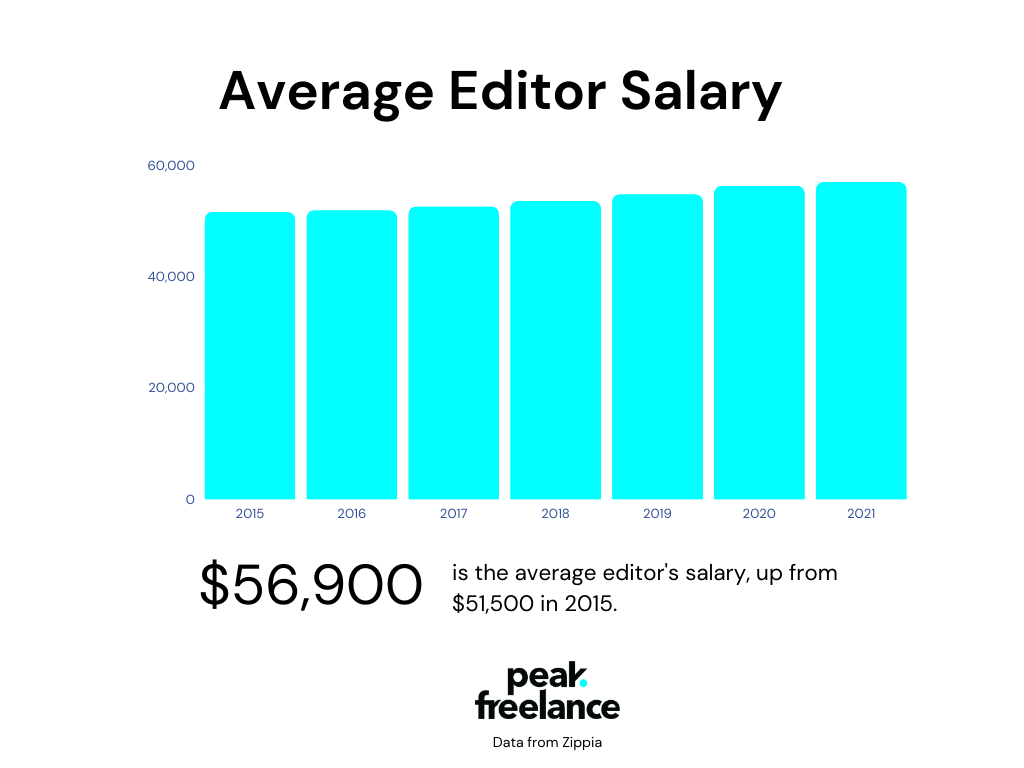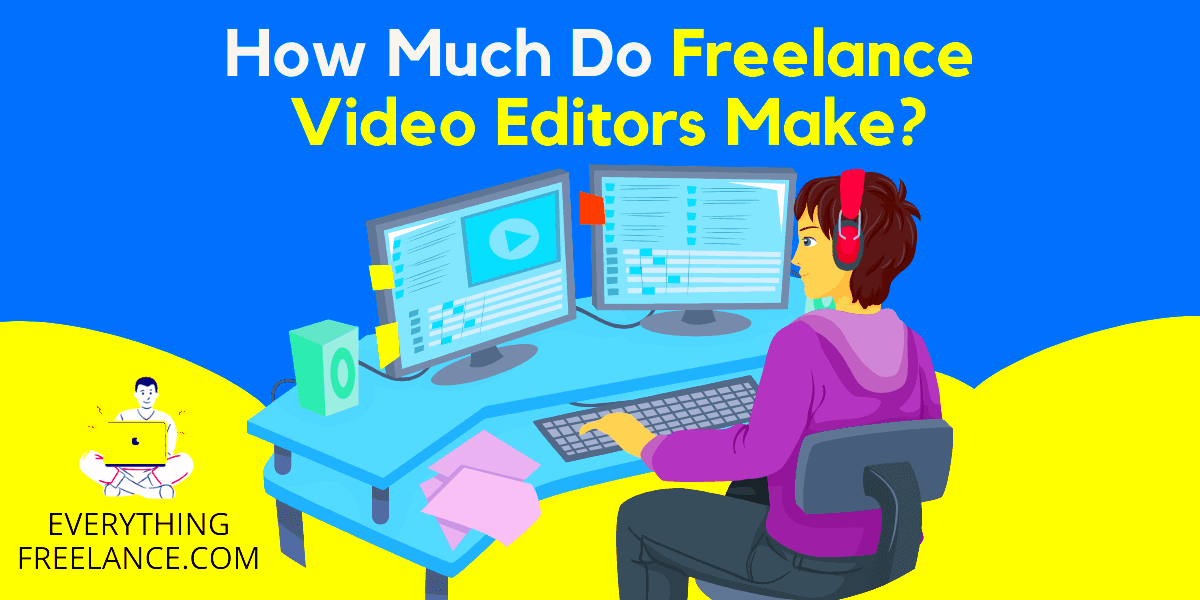Freelance video editing is a growing field that offers a lot of flexibility and opportunities for creative professionals. If you have a passion for video production and editing, this can be a great career path. As a freelance video editor, you work independently, handling different types of video projects for clients across various industries, including advertising, YouTube, weddings, and corporate content. The best part is that you can choose your projects, work from anywhere, and set your own rates. However, it takes dedication, skill, and an understanding of the market to succeed in this field.
How to Start as a Freelance Video Editor

Starting as a freelance video editor may seem challenging, but it's easier than you think. Here are the steps you can take to get started:
- Build Your Skills: Make sure you have a good understanding of video editing software like Adobe Premiere Pro, Final Cut Pro, or DaVinci Resolve.
- Create a Portfolio: Put together a portfolio showcasing your best work. This could be videos you’ve edited for clients, friends, or personal projects.
- Sign Up on Freelance Platforms: Websites like Fiverr, Upwork, or Freelancer are great places to find clients. Set up a professional profile and start applying for relevant jobs.
- Network and Promote Your Services: Use social media, attend industry events, and connect with other video creators to get your name out there.
- Set Your Rates: Research the average rates for video editors and set competitive yet fair pricing for your services.
By following these steps, you’ll be on your way to establishing yourself as a freelance video editor in no time!
Also Read This: What Should My Fiverr Description Look Like?
Skills Required for Success in Video Editing

To succeed as a freelance video editor, you need more than just technical knowledge. Here’s a breakdown of the skills that are important in this field:
- Technical Proficiency: You should be skilled in using video editing software like Adobe Premiere Pro, Final Cut Pro, or DaVinci Resolve. The more tools you know, the more versatile you become.
- Attention to Detail: Editing requires precision, so being able to spot small mistakes and make corrections is essential.
- Creativity: Video editing isn’t just about cutting clips together. You need a creative vision to turn raw footage into something engaging and compelling.
- Time Management: As a freelancer, you’ll often juggle multiple projects at once. Good time management ensures you meet deadlines without compromising on quality.
- Communication Skills: You need to understand your clients' needs and expectations. Being able to communicate clearly and professionally is key to building long-term client relationships.
- Problem-Solving: Sometimes you’ll run into technical or creative challenges. Being able to come up with solutions quickly will keep you on track.
By continuously improving these skills, you’ll not only become a better video editor but also a more successful freelancer in the industry.
Also Read This: What Does Pro Verified Mean on Fiverr?
Understanding the Income Potential for Freelance Video Editors

The income potential for freelance video editors can vary widely depending on several factors such as experience, niche, and market demand. However, freelance video editing offers a good opportunity for individuals to make a solid income. The flexibility of freelancing allows you to set your own rates, and as you build your portfolio and reputation, your earnings can increase. Many video editors earn an hourly rate, while others charge per project. On average, freelance video editors can expect to earn anywhere from $25 to $150 per hour, with some even making more for high-profile projects.
The key to increasing your income lies in delivering quality work, establishing relationships with clients, and expanding your skill set to cater to a wider range of video editing needs. Over time, as you become more experienced and develop a loyal client base, you may also have the opportunity to raise your rates or focus on higher-paying projects.
Also Read This: The pros and cons of being a Fiverr seller
Factors that Affect Earnings for Video Editors

Your earnings as a freelance video editor depend on several key factors. Here's a breakdown of the most important ones:
- Experience: More experienced video editors can command higher rates due to their expertise and reputation in the industry.
- Type of Work: Specialized video editing, such as color grading, motion graphics, or 3D animation, often commands higher rates compared to basic video cuts or edits.
- Client Type: Working with big brands or high-profile clients usually results in better pay compared to smaller, one-off jobs from individual clients.
- Location: Although freelance video editing is location-independent, editors in certain regions (like large cities) might charge higher rates due to local market demand.
- Workload: The more projects you can handle at once, the higher your potential income. However, this also requires efficient time management and quality control.
- Platform Choice: Freelance platforms like Fiverr and Upwork can take a commission, which can impact your earnings, but they can also connect you to clients you wouldn't find otherwise.
Understanding these factors will help you make strategic decisions in your freelance career to maximize your income.
Also Read This: What Do Additional Words in Fiverr Mean?
How to Increase Your Earnings as a Freelance Video Editor
Increasing your earnings as a freelance video editor involves a combination of improving your skills, marketing yourself, and choosing the right types of projects. Here are some practical strategies to boost your income:
- Specialize in a Niche: Specializing in a specific type of video editing, such as corporate videos, wedding videos, or social media content, can help you target clients willing to pay more for expert services.
- Improve Your Portfolio: Continuously update your portfolio with your best work. High-quality samples will help attract more clients and justify higher rates.
- Build a Strong Network: Networking is crucial in freelancing. Connecting with other professionals in your industry or attending events can lead to referrals and repeat business.
- Offer Additional Services: Offering additional services like sound editing, color correction, or motion graphics can increase the value of your work, allowing you to charge more for these extras.
- Use Social Media for Promotion: Social media platforms like Instagram, LinkedIn, and YouTube are great for showcasing your work and attracting potential clients.
- Upsell to Existing Clients: Once you have a client, offer them more services or higher-end edits to increase your earnings from each project. This could be as simple as offering faster delivery times or more detailed editing work.
- Increase Your Rates Gradually: As your skills and portfolio grow, don't be afraid to increase your rates. Be transparent with your clients, letting them know when you're offering more value with higher skill levels.
By applying these strategies, you can grow your freelance video editing business and see a significant increase in your earnings over time.
Also Read This: How Old Do You Have to Be to Use Fiverr?
Challenges Freelance Video Editors May Face
While freelancing as a video editor offers many benefits, it's not without its challenges. Freelance video editors often face the pressure of managing multiple projects, handling client expectations, and dealing with inconsistent workloads. Here are some common challenges freelance video editors may encounter:
- Inconsistent Income: As a freelancer, your income can fluctuate depending on the number of projects you secure. Some months may be busier than others, which can make financial planning difficult.
- Client Communication: Freelancers often deal with clients who may not have a clear idea of what they want or who change their minds mid-project. Managing expectations and ensuring clear communication is essential to avoid misunderstandings.
- Time Management: Balancing multiple projects at once, especially with tight deadlines, can be overwhelming. It’s easy to fall behind, which can hurt your reputation if deadlines are missed.
- Payment Delays: Freelancers sometimes face delays in payments or clients who don't pay on time. This can disrupt your cash flow and cause stress.
- Loneliness and Isolation: Working independently means you're often alone, which can be isolating. The lack of team interaction may also impact creativity and motivation.
- Competition: The freelance video editing market is competitive. To stand out, you need to consistently provide high-quality work and maintain a professional online presence.
Being aware of these challenges will help you prepare for the realities of freelancing and build strategies to overcome them effectively.
Also Read This: What Does Repeat Buyer Mean on Fiverr?
Conclusion
Freelance video editing can be an incredibly rewarding career choice. With the right skills, dedication, and approach, it offers freedom, flexibility, and a solid income potential. While there are challenges to overcome, such as managing fluctuating workloads and dealing with clients, these obstacles can be navigated with good planning, strong communication, and a professional attitude. By specializing in a niche, continually improving your skills, and building a reliable client base, you can turn freelance video editing into a successful and sustainable career.
Remember, success in freelancing takes time, but with persistence and a focus on delivering high-quality work, you’ll be well on your way to achieving your goals.
FAQ
1. How much can a freelance video editor earn?
Freelance video editors typically earn between $25 to $150 per hour, depending on experience, skill level, and the type of project. High-end projects, such as those involving motion graphics or special effects, can yield higher rates.
2. Do I need formal education to become a freelance video editor?
No, formal education is not necessary. While some video editors attend film school or take courses in video production, many successful freelance editors are self-taught through online tutorials and practice.
3. How do I find clients as a freelance video editor?
Clients can be found through freelance platforms like Fiverr, Upwork, or Freelancer. Networking through social media, attending industry events, and building a strong portfolio also help attract clients.
4. How can I set my rates as a freelance video editor?
Research the average rates in your area and for the type of work you do. As a beginner, it’s common to start lower to build your portfolio, but as you gain experience, you can gradually raise your rates to match your expertise.
5. What types of video editing work pay the most?
Specialized editing jobs such as motion graphics, 3D animation, color grading, and editing for high-profile corporate clients typically pay the most. These projects require more expertise and therefore command higher fees.




